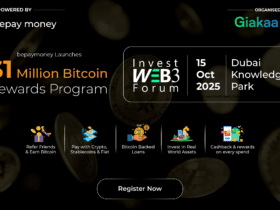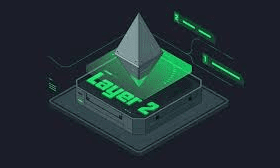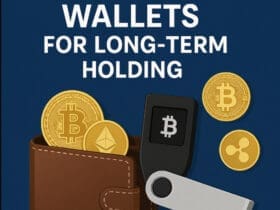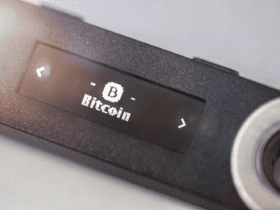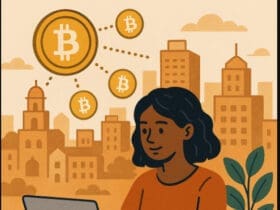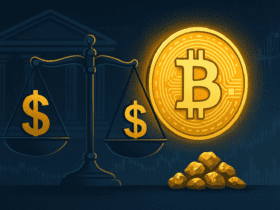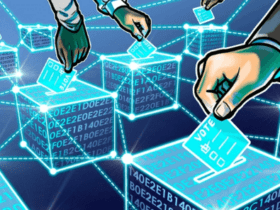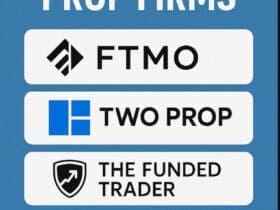In this article, I will discuss the How Blockchain Revolutionized the Gaming Industry. Blockchain has changed how games are played, developed, and monetized by granting players genuine ownership of gaming assets, allowing play-to-earn models, and facilitating decentralized marketplaces.
This technology provides transparency and security as well as new economic prospects, fortifying its position as the influencer of the future of interactive gaming entertainment for players across the globe.
Understanding Blockchain in Gaming
Blockchain gaming incorporates distributed ledger tech into video games to facilitate interactions within the game that are secure, crystal clear, and cannot, under any circumstances, be modified.
In contrast to traditional games where assets and currencies are held on a centralized server, blockchain tech allows players to own, cross-platform trade, and sell items.
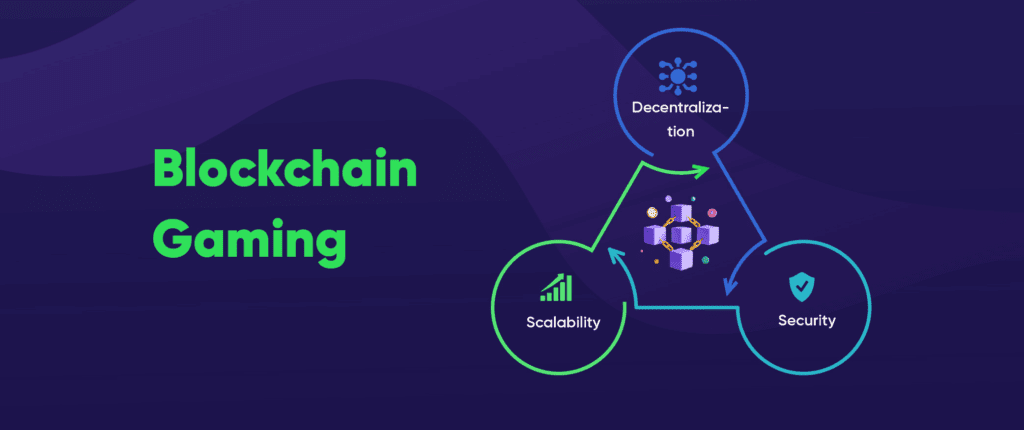
Every transaction of items, rewards, and even purchases is secured and recorded on an unchangeable log, preventing any form of cheating and fraud. Also, this technology makes it possible to create Crypto and NFT economies within games, thus enabling new economic frameworks that grants players in-game assets with real world value.
The Best Innovations in Blockchain Technology in Gaming focuses on the role of blockchain technology in advancing player engagement, ownership, and the digital economy.
How Blockchain Revolutionized the Gaming Industry
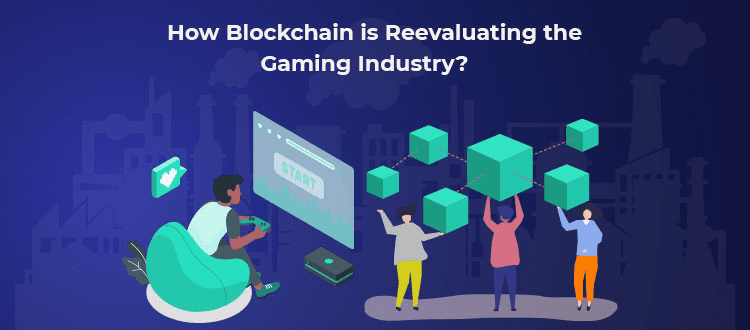
Here’s a step-by-step example showing the importance of the blockchain in revolutionizing the gaming industry with the game Axie Infinity as a case study.
Step 1: Introduction to the Game
Axie Infinity is a blockchain game in which players collect, breed, and battle digital pets known as Axies. Unlike normal games, each Axie is an NFT and as such players possess true ownership of their Axies and other digital assets.
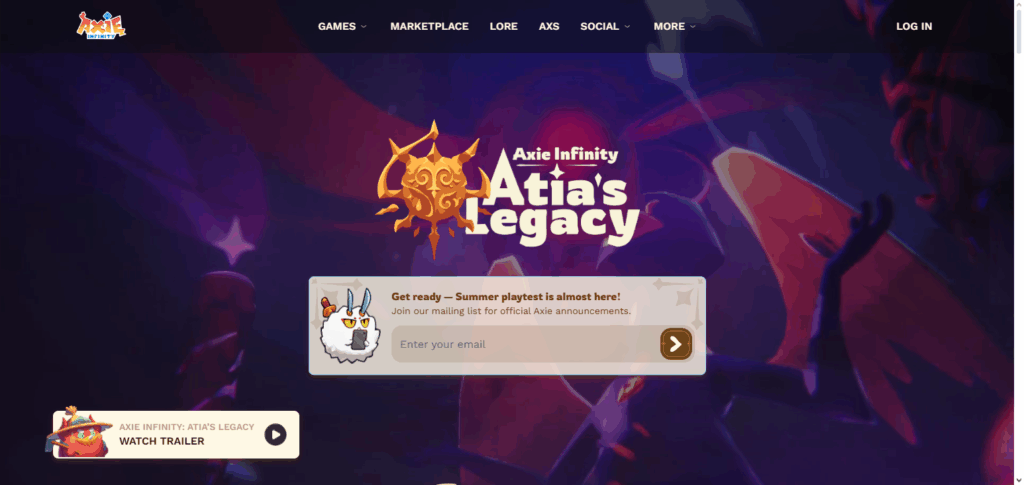
Step 2: Token Integration
The game incorporates two cryptocurrencies: SLP (Smooth Love Potion) which is gained as a reward for playing, and the governance token AXS. Both tokens have the ability to be purchased or sold at exchange platforms thereby establishing a form of real-world economic incentive.
Step 3: Play-To-Earn Model
Gamers get cryptocurrency rewards for killing monsters, completing quests, and breeding Axies. This system is a major shift from the older systems which regarded gaming as a way of earning an income.
Step 4: Ownership and Trade
NFTs allow players to purchase, sell and trade Axies within a decentralized marketplace. This in-game item ownership is irrefutably capable of being proved and authenticated on the blockchain causing it to possess real value.
Step 5: Community and Governance
Players of the game can use their AXS tokens to vote on game changes or new policies. This gives the players power and fosters a sense of community which in turn enhances participation.
Step 6: Global Impact
Axie Infinity has shown the transformational potential of blockchain technology by allowing game players across the globe, particularly those in developing countries, to earn a living.
What benefits does blockchain offer to the gaming industry?
Actual Ownership of Digital Assets
Thanks to blockchain technology, gamers may convert digital items in a game to NFTs and hence have options to purchase, trade, and sell items even at economic or social platforms external to the game. This phenomenon fulfills the demand of players and virtual items get monetized.
Earning While Playing the Game
NFTs are able to earn tokens and cryptocurrencies while playing the game, completing missions, and reaching goals. This is a great way to capture player’s interest and grow the revenue of game developers.
Fraud Proof Transactions
The transactions of the game do not get modified , stored in a blockchain, and thus players are at ease knowing that cheating or hacking is not a possibility. They are also able to trust the transactions they do and trade items with the game securely.
Decentralized Game Economies
Blockchain eliminates the need for a central authority and gamers can directly trade with one another. This lowers the transaction charges and creates more equity in the system while providing universal access to all.
Seamless Transition Between Games
Some in-game items on blockchain can work on other games and platforms, providing more advantages for gamers by increasing the value of the in-game assets while creating a shared digital economy.
Player-Centric Governance
Players can also participate in the decision-making process by using governance tokens allotted to them. They can vote on new features, alterations to the game, rules, and updates. This encourages more players to be devoted to the game and feel a sense of responsibility and ownership toward it.
Innovations and New Game Models
The implementation of blockchain technology into gaming sustains creativity and broadens the gaming ecosystem with unique features such as NFT collectibles, play-to-earn models, and decentralized virtual environments.
Blockchain and Game Economy: Tokenization and Ownership
Blockchain technology is fundamentally transforming value exchange on the gaming landscape. In the earlier set-up gaming ecosystems, the developers exercised monopolistic control over in-game currencies and assets which diminished the complete ownership by the players.
However, with blockchain technology, players “gamers” are now able to remotely control their virtual assets which changes the in-game economy greatly.
Tokenization of In-Game Assets
Tokenization is the conversion of assets which are game items into tokens which are kept on the blockchain, usually in the form of NFTs. These collectibles are actively monetizable and can be purchased, sold and traded. An example includes tokenization of rare weapons, skins, and characters and as a result players can relish the fact that they own and can monetize their virtual assets.
Digital Ownership and Asset Management
Unlike the traditional setup where players are only able to access to certain items, blockchain technology permits a player to own a digital collectible independent of centralized servers. Players now have greater assurance and confidence to spend time and resources on a game, as their in-game assets can be held as collateral.
A collectible earned from the game can be traded with digital assets that have substantial value on various marketplaces enhancing the economic prospects in addition to the gaming experience.
Impact on Game Development and Publishers
The impact blockchain has on the development and publishing of games is immense. Unlocking ownership of in-game items and constructing decentralized economies provide new revenue opportunities via NFT sales, “tokenized” rewards, and multiple play-to-earn options.
Publishers gain improved fraud mitigation, clearer transaction reporting, and player confidence. Players gain ownership which, in turn, results in greater player retention. Community-driven governance is possible via blockchain and allows players to actively participate and vote on the addition of new updates or other features which ultimately translates to greater loyalty.
Because of this, developers and publishers are able to explore new revenue opportunities while maintaining reliable and engaging gaming environments.
Improved Transparency and Security
Blockchain technology boosts security and transparency in gaming by storing all transactions in a secure and decentralized ledger. This stops cheating, hacking, and unwarranted changes to virtual items, securing players’ purchases and rewards.
Developers gain from lowered fraud and higher responsibility, as all game actions are recorded on the blockchain. Players and game publishers build a trust relationship based on transparent, verifiable actions, improving the fairness of the game.
Blockchain improves the social and economic aspects of gaming by providing a secure and transparent environment, making the digital world more enjoyable and entertaining for players globally.
Future of Blockchain in Gaming
In gaming, blockchain technology holds promise for immersive innovations in player interaction. Emerging trends, including the Metaverse, cross-game economies, interoperable NFTs, and expanding asset ownership, enhance player engagement.
More importantly, blockchain technology facilitates frictionless asset transfers between games, while play-to-earn models constantly create real-world earning opportunities.
Developers are also experimenting with community development and co-creation of games, empowering players to influence features and updates.
The borderless, fair, and fulfilling nature of gaming will also change with mass adoption. The upcoming period of blockchain gaming holds promise for the entire landscape of interactive entertainment.
Conclusion
To sum it up, blockchain technology has revolutionized gaming by allowing true ownership of digital assets, implementing a play-to-earn economy, and providing a safe and transparent gaming environment.
New revenues, decreased fraud, and greater engagement benefit publishers and developers, while gamers benefit from enhanced freedom and new economic opportunities in addition to greater ownership of digital assets.
Blockchain technology, NFTs, decentralized marketplaces, and community-led governance are reshaping how games are played, designed, and monetized. Greater technological advancements will continue to improve the blockchain gaming experience, increasing immersion, fairness, and rewards.
FAQ
Through tokenization, in-game items become NFTs stored on the blockchain. This allows players to buy, sell, or trade their assets independently of the game developer, giving real-world value to digital possessions.
Play-to-earn allows players to earn cryptocurrency or tokens by completing missions, battles, or achievements. This model turns gaming into a potential source of income.
All transactions and asset ownership records are stored on an immutable blockchain ledger, preventing fraud, hacking, and cheating. This ensures trust between players and developers.
The future includes interoperable assets, decentralized marketplaces, Metaverse integration, and expanded play-to-earn models, making gaming more immersive, fair, and economically rewarding for players worldwide.
Blockchain creates new revenue streams through NFTs and tokenized rewards, fosters community-driven governance, and increases transparency, allowing developers and publishers to engage players more effectively.



